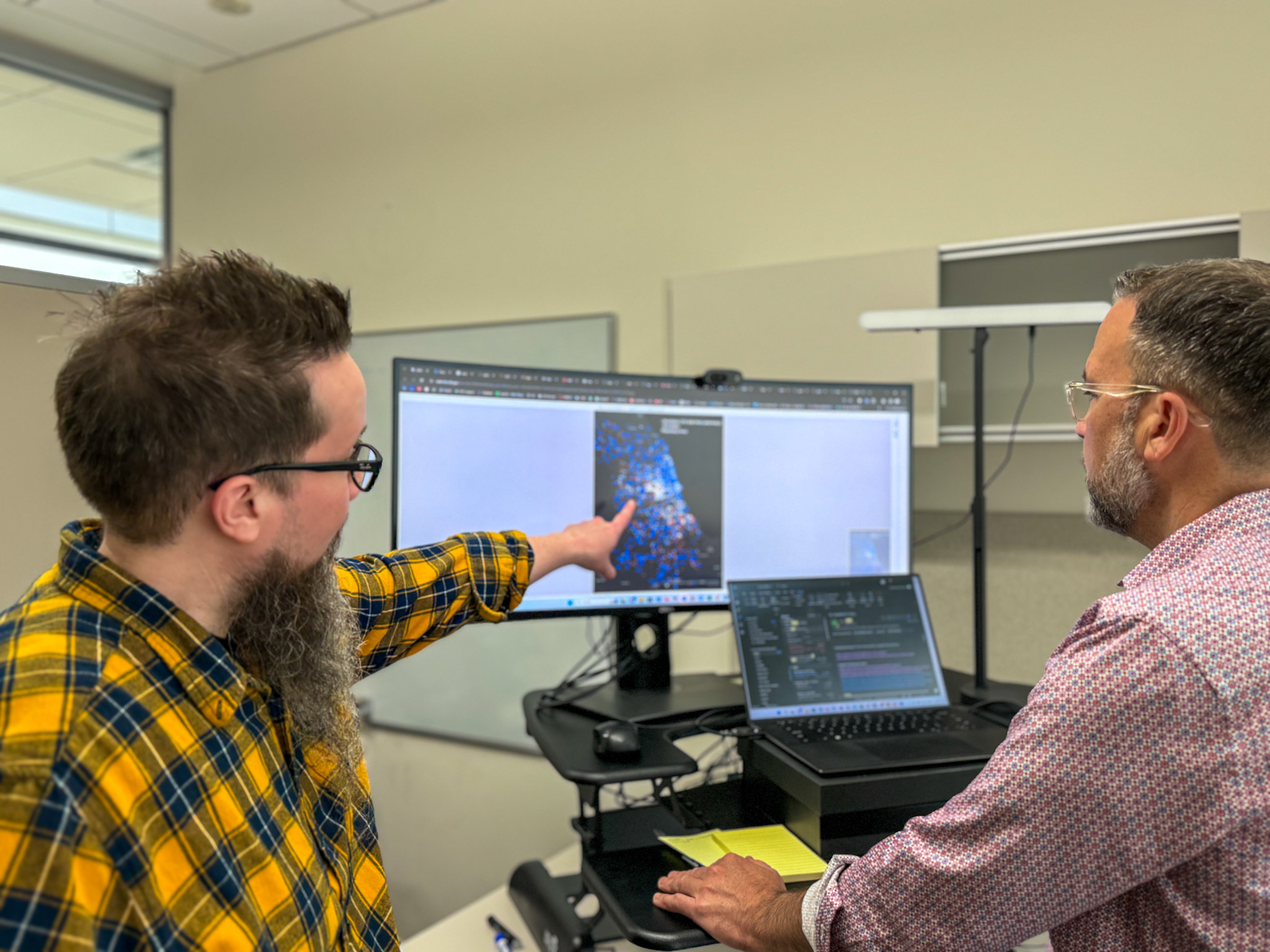
University of Kentucky Innovators Win $50K DataWorks! Challenge Prize
LEXINGTON, Ky. (Mar. 1, 2024) – A collaborative team from the University of Kentucky’s Institute for Biomedical Informatics and Institute for Pharmaceutical Outcomes and Policy, comprising Daniel Harris, Ph.D., Chris Delcher, Ph.D., and Nick Anthony, has been awarded a $50,000 prize in the 2023 DataWorks! Challenge. This challenge is a flagship initiative sponsored by the Federation of American Societies for Experimental Biology (FASEB) and the National Institutes of Health (NIH), designed to spotlight and support innovative projects that emphasize data sharing and reuse in the scientific community.
The FASEB is a leading organization dedicated to advancing health and well-being by promoting research and education in biological and biomedical sciences through collaborative advocacy and service. FASEB champions the importance of data management and access, facilitating a culture of data sharing vital for scientific progress and innovation.
Harris, a computer scientist and associate professor; Delcher, an epidemiologist and associate professor; and Anthony, a software developer and data scientist, have leveraged their unique expertise to create a tool that addresses critical data reuse needs in the biomedical research field. Their work epitomizes the spirit of innovation and interdisciplinary collaboration that the University of Kentucky seeks to promote.
The winning project, geoPIPE, is a groundbreaking open-source tool developed by the team to enrich open data streams with advanced geospatial analyses and natural language processing capabilities. geoPIPE stands at the forefront of the data reuse category, demonstrating the team's commitment to enhancing the accessibility and utility of biomedical data for researchers worldwide.
The DataWorks! Prize recognizes exceptional teams integrating data sharing and reuse to advance human health, reflecting FASEB and NIH’s commitment to fostering a culture of open science. This year's competition highlighted the importance of community engagement and effective practices in data management, with the winning teams set to share their insights and experiences at the DataWorks! Prize symposium.
The University of Kentucky team's achievement not only underscores their individual expertise and dedication but also represents a significant contribution to the broader scientific community. By facilitating more efficient use and reuse of data, geoPIPE promises to accelerate research discoveries using open data and improve health outcomes.
FASEB's DataWorks! initiative is pivotal in advancing human health through data sharing and reuse. As technological advances increase the complexity and volume of data in biological and biomedical research, initiatives like DataWorks! are essential for navigating these challenges and maximizing the impact of scientific research.
For more information about the DataWorks! Challenge and the 2023 prize recipients, visit FASEB's official announcement page.
We wish to remember and honor those who inhabited this Commonwealth before the arrival of the Europeans. Briefly occupying these lands were the Osage, Wyndott tribe, and Miami peoples. The Adena and Hopewell peoples, who are recognized by the naming of the time period in which they resided here, were here more permanently. Some of their mounds remain in the Lexington area, including at UK’s Adena Park.
In more recent years, the Cherokee occupied southeast Kentucky, the Yuchi southwest Kentucky, the Chickasaw extreme western Kentucky and the Shawnee central Kentucky including what is now the city of Lexington. The Shawnee left when colonization pushed through the Appalachian Mountains. Lower Shawnee Town ceremonial grounds are still visible in Greenup County.
We honor the first inhabitants who were here, respect their culture, and acknowledge the presence of their descendants who are here today in all walks of life including fellow pharmacists and healthcare professionals.
